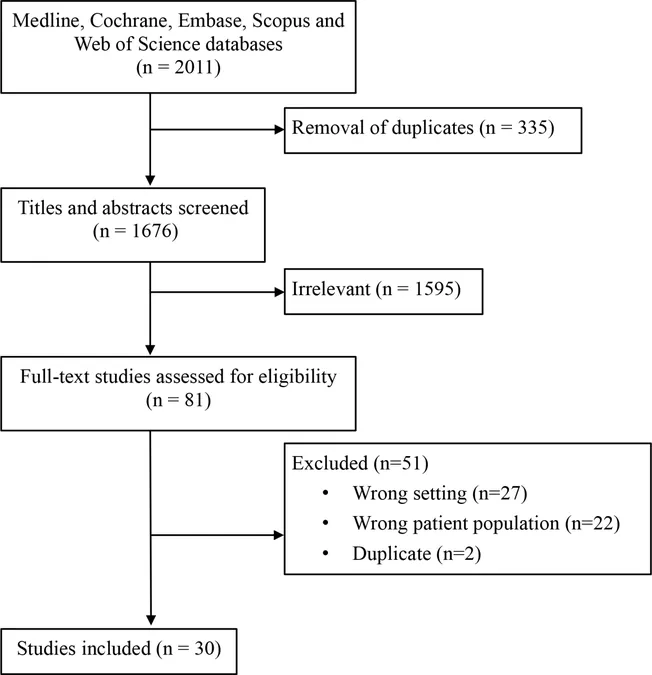
Boosting Trust in Scientists: The Surprising Power of Intellectual Humility
2024-11-18
Author: Rajesh
Introduction
In an age where scientific credibility is increasingly questioned, how can researchers regain the public's trust across critical fields such as climate science, medicine, and psychology? New findings suggest that displaying intellectual humility might be the answer.
Research Overview
Recent research led by a team of University of Pittsburgh scholars, involving 2,034 participants across five studies, reveals that scientists who demonstrate a recognition of their limitations in knowledge and an openness to new ideas are viewed as more trustworthy. This research was published on November 18 in the prestigious journal *Nature Human Behaviour*.
Jonah Koetke, the principal author and a graduate student alongside associate professor Karina Schumann, emphasizes the importance of intellectual humility. "Being aware that our own knowledge might be incomplete encourages a more rigorous and unbiased examination of information," Koetke stated. The researchers set out to determine whether the public perceives intellectually humble scientists as producing more credible and reliable research.
The Importance of Trust in Science
The importance of trust in science has never been more crucial—particularly following a concerning statistic indicating that American confidence in scientists dropped by 10% between 2020 and 2021, leaving only 29% expressing substantial trust. Conflicts around seasoned topics, particularly during the pandemic—covering lockdowns, social distancing, and vaccine efficacy—have only deepened this mistrust.
"As anxiety levels rise during turbulent times, people are left uncertain about whom to believe," Schumann noted. The research aimed to identify what genuinely promotes or detracts from public trust in scientific endeavors.
Key Attributes of Trustworthiness
The researchers focused on three key attributes of perceived trustworthiness: expertise, benevolence (the notion that scientists prioritize the well-being of society), and integrity. They specifically hypothesized that a scientist's intellectual humility could substantially inform public trust.
The Findings Unfold
Study 1
Engaged 298 participants who evaluated various scientists based on their perceived intellectual humility. The results showed a direct correlation: the more humble scientists were perceived, the higher the trust they garnered, alongside greater belief in controversial scientific topics like climate change and vaccines.
Study 2
Took this a step further, assigning 317 participants to read one of three variations of an article on a female scientist studying long COVID treatments. Participants who read about a humble scientist reported higher trust levels compared to those who read about a less humble counterpart.
Study 3
Explored whether the scientist’s gender impacted public perception of intellectual humility, involving 369 participants. The results reconfirmed that intellectual humility significantly affected trust, regardless of whether the scientist was perceived as male or female.
Study 4
Focusing on race, 371 participants assessed an article about a climate scientist researching plant-rich diets. Once again, the perceived intellectual humility bridged trust gaps, with 36% of participants interested in further information when the scientist demonstrated high humility, compared to a mere 21% for those portrayed with low humility.
Study 5
Aimed to tackle how scientists could effectively communicate their intellectual humility to the public. Involving 679 participants, the study presented various interview methods. While some approaches highlighted a scientist's limitations or credited their team, few successfully increased trust levels, and some even led to reduced trust in the research.
Conclusion
Schumann expressed optimism about the findings, noting that they highlight how the public appreciates the nature of scientific inquiry as a journey of learning rather than merely providing definitive answers. “The pursuit of knowledge inherently involves acknowledging uncertainties, and this resonates with the public,” she explained.
As scientists navigate an increasingly complex landscape of misinformation and public skepticism, these findings underscore the potential of intellectual humility as a pathway to rebuild trust in science. Future research will look to identify concrete strategies for effective communication of humility while fostering greater public confidence in scientific authorities. This could indeed reshape public discourse around science—turning skepticism into trust.



 Brasil (PT)
Brasil (PT)
 Canada (EN)
Canada (EN)
 Chile (ES)
Chile (ES)
 España (ES)
España (ES)
 France (FR)
France (FR)
 Hong Kong (EN)
Hong Kong (EN)
 Italia (IT)
Italia (IT)
 日本 (JA)
日本 (JA)
 Magyarország (HU)
Magyarország (HU)
 Norge (NO)
Norge (NO)
 Polska (PL)
Polska (PL)
 Schweiz (DE)
Schweiz (DE)
 Singapore (EN)
Singapore (EN)
 Sverige (SV)
Sverige (SV)
 Suomi (FI)
Suomi (FI)
 Türkiye (TR)
Türkiye (TR)